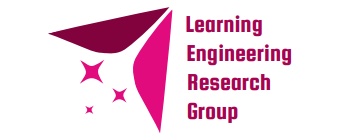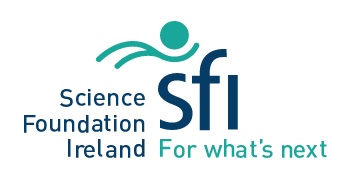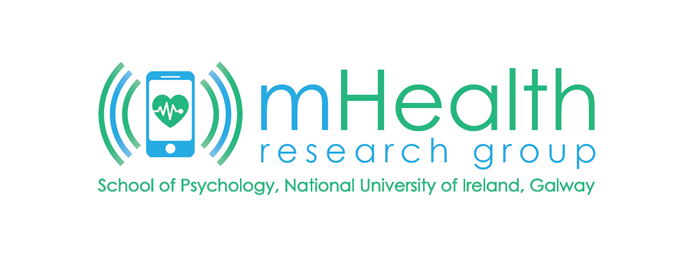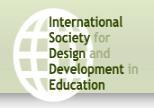-
Courses

Courses
Choosing a course is one of the most important decisions you'll ever make! View our courses and see what our students and lecturers have to say about the courses you are interested in at the links below.
-
University Life

University Life
Each year more than 4,000 choose University of Galway as their University of choice. Find out what life at University of Galway is all about here.
-
About University of Galway

About University of Galway
Since 1845, University of Galway has been sharing the highest quality teaching and research with Ireland and the world. Find out what makes our University so special – from our distinguished history to the latest news and campus developments.
-
Colleges & Schools

Colleges & Schools
University of Galway has earned international recognition as a research-led university with a commitment to top quality teaching across a range of key areas of expertise.
-
Research & Innovation

Research & Innovation
University of Galway’s vibrant research community take on some of the most pressing challenges of our times.
-
Business & Industry

Guiding Breakthrough Research at University of Galway
We explore and facilitate commercial opportunities for the research community at University of Galway, as well as facilitating industry partnership.
-
Alumni & Friends

Alumni & Friends
There are 128,000 University of Galway alumni worldwide. Stay connected to your alumni community! Join our social networks and update your details online.
-
Community Engagement

Community Engagement
At University of Galway, we believe that the best learning takes place when you apply what you learn in a real world context. That's why many of our courses include work placements or community projects.
Learning Engineering Research Group
Digital technologies are becoming key enablers to bring about learning and behavioural change relating to personal, societal, health, environmental and economic objectives. While used extensively in specific settings such as personal fitness and quality control, there are many opportunities in other spheres.
This multi-disciplinary research group combines industry-inspired practices with digital technologies and computing to create engaging learning experiences, understand human learning and knowledge transfer to facilitate behavioural change in a variety of contexts.
Drawing from related disciplines the Learning Engineering Research Group’s mission is to:
Bring together researchers from the cognitive, social, educational, and computational sciences and lead in merging science and data to design powerful learning experiences to enable behavioural change for personal and societal impact.
The collaborative and interdisciplinary approach of the Research Group combines technical, pedagogical, empirical, behavioural and design-based disciplines, contributing to a wide range of learning (formal, informal and nonformal) liberatory pedagogies, addressing injustice and transforming learning environments.
The core values underpinning our research ensure all learners develop the knowledge, skills, and agency needed to thrive and participate in a just and equitable society. The Learning Engineering Research Group was established by Professor Cornelia Connolly.
BlueSky: /learnenggroup.bsky.social
Our particular focus is on collaborative engagement to include students, staff, and faculty with backgrounds in the area of the digital technology methodology such as computer science, education, AI, information systems, behavioural science and psychology, the learning sciences and more, or in the area of the digital technology practice.
Digital technologies for learning:
- Prof Cornelia Connolly, School of Education
- Dr. Ryan Dennis, School of English
- Dr. Colette Kirwan, SFI Postdoctoral Fellow
- Dr Sally McHugh, School of Education
Digital technologies for improved health:
- Dr Peter Carr, School of Nursing and Midwifery
- Professor Derek O'Keefe, School of Medicine
- Professor Leo Quinlan, School of Medicine
- Professor Jane Walsh, School of Psychology
Digital technologies for sustainable nutrient management, agricultural science:
- Professor Cathal O'Donoghue, School of Geography, Archaeology & Irish Studies
- Dr David Styles, School of Geography, Archaeology & Irish Studies
Digital technologies for business digital transformation:
- Dr Noel Carroll, School of Business & Economics
- Professor Kieran Conboy, School of Business & Economics
Project Title: CodePlus
Funder: Google
Funder: Rethink Ireland
Ryan, L., Coyne, R., Coleman, S., Worliker, H., Broadbent, E., Browne, A., O'Keeffe, D., Connolly, C., Crotty, M., Birney, S., Zimmerman, T., Conlan, O. and Walsh, J. (2024). Virtual Humans: Enhancing GP Training in Weight-Based Conversations. https://doi.org/10.17605/OSF.IO/XP2EN
Porcenaluk, S. and Connolly, C. (2024) Designing effective continued professional development for primary teachers during curriculum reform in mathematics. International Journal of Mathematical Education in Science and Technology (IJTMES) https://doi.org/10.1080/0020739X.2024.2337939.
Carrol, N., Lang, M. and Connolly, C., (2024) A Revised Community of Inquiry Model Supporting Students in Online and Digital Education, Innovations in Education and Teaching International https://doi.org/10.1080/14703297.2024.2326658.
Worlikar, H., Doran, J., Connolly, C., and O’ Keeffe, D. (2024) MADRA the digital St Bernard dog: A proof of concept simulation of a quadruped robot first responder, International Journal of Healthcare Simulation - Advances in Theory & Practice Journal.
McHugh, S., Carroll, N. and Connolly, C. (2023) Low-Code and No-Code in Secondary Education - Empowering Teachers to Embed Citizen Development in Schools, Computers in the Schools, https://doi.org/10.1080/07380569.2023.2256729
Connolly, C., Johnson, P., Johnson K., Fitzpatrick, M., O’Keeffe, D. (2023) A Stratospheric Mission – Design of a Conceptual Framework to bring Weather Balloons and STEM into the Classroom, Frontiers in Education. https://www.frontiersin.org/articles/10.3389/feduc.2023.1145043/full
Porcenaluk, S., O’Neachtain, A. and Connolly, C. (2023) Reimagining a framework for teachers’ continuous professional development during curriculum reform, Irish Educational Studies, https://doi.org/10.1080/03323315.2023.2250765
Connolly, C., Hernon, O., Carr, P., Worlikar, H., McCabe., I., Doran, J., Walsh, J.C., Simpkin, A. and O’Keeffe, D.T. (2023) Embedding Artificial Intelligence in Professional Practice Education – the Home Health Project, an Exemplar for Change, Computers in the Schools, https://doi.org/10.1080/07380569.2023.2247393
Pröbster, M., Velert Soto. M., Connolly., C. and Marsden, N. (2022) Avatar-based Virtual Reality and the Associated Gender Stereotypes in a University Environment European Journal of Open, Distance and E-Learning, 24(1), pp. 11 -24 https://doi.org/10.2478/eurodl-2022-0002
Connolly, C., Murray, C., Brady, B., MacRuairc, G. and Dolan P. (2022) New Actors and New Learning Spaces for New Times - A Framework for Schooling that extends beyond the School, Learning Environments Research https://doi.org/10.1007/s10984-022-09432-y
Kelly, O., Hall, T. and Connolly, C., (2022) PACE-IT: Designing blended learning for accounting education in the challenging context of a global pandemic; Accounting Education https://doi.org/10.1080/09639284.2022.2090851
Connolly, C., Rowan Byrne J., Odlum, E. (2022) The Trajectory of Computer Science Education Policy in Ireland: A Document Analysis Narrative, European Journal of Education, 365-379, https://doi.org/10.1111/EJED.12507
Worlikar, H., Vyas Vadhiraj, V., Murray, A., O’Connell, J., Connolly, C., Walsh, J.C., O’Keeffe D.T. (2021) Is it feasible to use a humanoid robot to promote hand hygiene adherence in a hospital setting?, Infection Prevention in Practice, https://doi.org/10.1016/j.infpip.2021.100188
Ó Grádaigh, S., Connolly, C., Mac Mahon, B., Agnew, A. and Poole, W. (2021) An investigation of emergency virtual observation (EVO) in initial teacher education, in Australia and Ireland during the COVID-19 pandemic, Irish Educational Studies, 40(2), 303-310. https://doi.org/10.1080/03323315.2021.1916561
Hijón-Neira, R., Pérez-Marin, D., Pizarro, C.,and Connolly, C., (2020) "The Effects of a Visual Execution Environment and Makey Makey on Primary School Children Learning Introductory Programming Concepts" IEEE Access, 8, 217800-217815 10.1109/ACCESS.2020.3041686
Lynch R, Mallon B and Connolly C. (2015) The Pedagogical Application of Alternate Reality Games: using Game-Based Learning to Revisit History. International Journal of Game-Based Learning, 5(2), 18-38. https://doi.org/10.4018/ijgbl.2015040102
Connolly, C., Murphy, E. and Moore, S. (2008). Undergraduate Computing Students and Programming Anxiety – A Key in the Retention Debate? IEEE Transactions in Education, 51(4) https://doi.org/10.1109/TE.2008.917193
Connolly, C. (2002), “Scanning our Past from Ireland, The Transatlantic Cable” Proceedings of the IEEE History of Telecommunications, 90(4) https://doi.org/10.1109/JPROC.2002.1002531.
Our research updates https://bsky.app/profile/learnenggroup.bsky.social


























